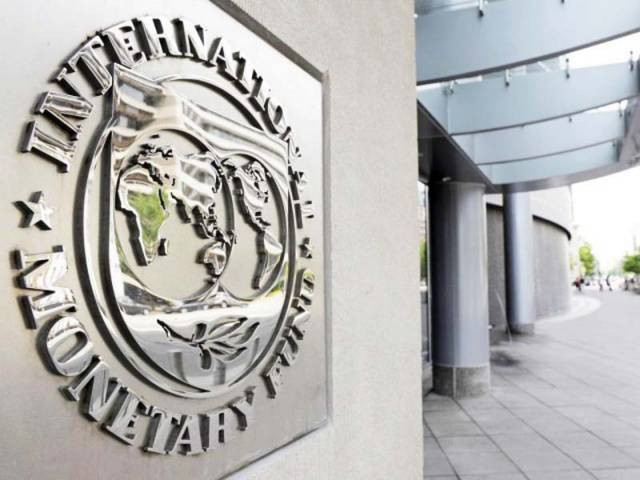IMF confident Pakistan can now handle mild economic shocks
Resident representative says policymakers need to build on three years of gains

Resident representative says policymakers need to build on three years of gains PHOTO: FILE
Today’s Pakistan is far better than what it was three years ago, as most indicators are at a point where we wanted them to be at the end of the three-year EFF, said Mirzoev while talking to a group of journalists. He cherished the achievements under the $6.4 billion bailout programme, notably on the fiscal front.
IMF clears payment to Pakistan in 3-year programme
“The ship of Pakistan’s economy has taken a different, but good turn,” said IMF’s resident representative to Pakistan. He said that the country can now stand on its own feet and can absorb short to medium sized economic shocks.
“Now the main challenge for the policymakers is to build on the past three years of gains and continue reforms,” said Mirzoev while highlighting the energy sector as one such area that needs sustained reforms. Mirzoev also said that the IMF would keep monitoring economic progress under Post Programme Monitoring mechanism. He said that the IMF intends to have twice a year monitoring of fiscal and monetary policies.
He admitted that the privatisation programme did not go as planned but said that the accumulation of circular debt was slow. In the last fiscal year 2015-16, Pakistan only added Rs8 billion in the circular debt, taking the total volume of inter-corporate debt of the energy sector to Rs321 billion, said Mirzoev.
The Rs335 billion past arrears of the energy sector that have been parked in a holding company were in addition to Rs321 billion.
Past and present
Before Pakistan became part of the IMF’s Extended Fund Facility programme, the international lender conducted an assessment that projected the country’s situation for a scenario when no reforms would be implemented and a scenario when they would be.
Capitalisation of overall banking system in Pakistan is strong: IMF
The IMF’s without reform scenario predicted 3% economic growth rate in 2016 and the reform scenario showed it at 3.7%. However, it remained at 4.7% by end of fiscal year 2016 - better than reform scenario projections. Yet the rate is lower than 7% needed to create jobs for incoming youth every year.
The IMF had projected 11.3% inflation under its baseline scenario and 7% in reform scenario. The inflation in last fiscal year remained at 2.9%. The IMF’s baseline scenario showed 9% budget deficit in 2016 and 3.9% in case of reforms.
However, the actual budget deficit remained at 4.6% of the GDP at the end of the programme - missing the target.
Another gray area was the level of the country’s indebtedness. The baseline scenario projected 63.6% of GDP debt by 2016 and reform scenario showed it at 60.5% of the GDP. However, the debt to GDP ratio remained close to 65% last year, higher than even the reform scenario projections.
The gross foreign currency reserves reached to a point, which are sufficient to provide cover to four-month import bill -better than reform scenario projections of the IMF.
Taxation measures
The resident representative said that performance in the fiscal and taxation areas was commendable. He also praised progress in giving autonomy to the State Bank of Pakistan and bringing transparency in monetary policy decision-making.
However, there are areas where some short-term gains were made that now need sustained phase of reforms. Mirzoev said that in short-term, Pakistan managed to reduce the duration of power outages and the slowed down the pace of accumulation of circular debt. “More needs to be done to end the problems in the energy sector,” he added. The improvement in business climate was another area that Mirzoev highlighted needed attention.
The IMF country head distanced him from the controversy over the credibility of official statistics. He said the IMF does not have the mandate to probe the authenticity of the official statistics. He said that this was the job of the country’s own institutions.
Published in The Express Tribune, August 11th, 2016.
Like Business on Facebook, follow @TribuneBiz on Twitter to stay informed and join in the conversation.


















COMMENTS
Comments are moderated and generally will be posted if they are on-topic and not abusive.
For more information, please see our Comments FAQ